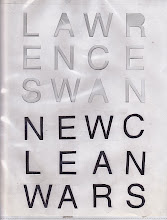notes for a homily
Good news, everyone
I began reading a big book entitled The Ocean of Reasoning that I found at Spoonbill and Sugartown. It was written about five hundred years ago by a Tibetan philosopher as a commentary on a work by a third century Indian philosopher and despite the obvious absurdity of studying commentaries of commentaries of commentaries on the doctrine of emptiness and of the emptiness of emptiness, I intend to plow straight through it, pushing my eyes through the thicket of words until I get to the other side.
The use of books is endless, but I imagine this is my work.
It pays nothing, but I imagine this is my work.
I’ve also been studying the gospel of Mark.
The Buddha said his dharma is like a raft you use to cross over and then you don’t need it any more.
Maybe Mark’s gospel is like a raft that carries you across the Jordan River or Sea of Galilee and when you get to the other shore you leave it behind. You don’t burn it. You leave the raft for others to use, because it wasn’t yours in the first place.
What does it mean?
What does the death and resurrection of Jesus mean beyond the historical fact that he was the leader of a movement who was arrested by the police, tried, and executed by the authorities, and that this dead radical’s students made grandiose claims about magical acts and spread the story that Jesus had been resurrected and will return to conquer the bad guys and set things right.
Did Jesus think of himself that way?
Did Jesus think he would be killed but the Heavenly Father would glorify him and he would become an archetype, and the instrument of state terror, the Cross, would become the central symbol in the myth of Western Civilization, all of that “history” — that story we tell ourselves, as I’m telling it to myself now, doing what I believe is my work, writing whatever comes to mind while flying high on the wings of the morning? I fill scrolls with ink and roll them up tight and stack them in my mountain cave. My cell with a view.
I can see the whole world out my window and way into the past and not at all into the future. I see Europe arrive at Manhattan, wearing a cross around its neck as a threat to the uncivilized and unchristian.
Good news, everyone, says Europe. This cross I’m waving means we are in charge, and our laws are now the law of the land, and now this land is our land, and this land ain’t your land, because we worship the Cross and you don’t and you don’t understand the holy law of private property and that we bought mother earth from you fair and square, no paper lease necessary, and we now own your home, just as we own these Africans we brought here to be essential workers and to build our church to the glory of God.
Look. No kidding. Religious nationalism is dangerous and evil.
The nationalist gospel is a false god fabricated from pages torn out of scriptures. If your conception of the gospel is false, you need to forsake that false conception. But you also have to go beyond the simple negation of the false gospel. I’m thinking of those professional atheists who proclaim the non-existence of a straw god and then preach their faith in this no-god. Still, it is better to believe in no god than to serve your nationalist god.
Consider the hypothetical historical Jesus, the plausible human, a teacher of justice and liberation unjustly executed by the ruling class because they feared a change in the order that might take away their power, privilege, wealth, and they acted exactly the way Jesus expected them to act. They persuaded the Empire’s agent to torture and kill this threat to society and enemy of God.
Why did Jesus do it? Why did he say he would be in his glory? Why did he say he would be resurrected and what was it that his followers called “the resurrection of Jesus” — a lie? A conspiracy? Folk tale or urban legend? Myth? Archetype? A symbol, fantasy, mistake, miracle? An ideology?
Was the execution of Jesus an empirical fact that flashed like lightning reflected in a dew drop? Was Christ nailed to a cross a mere thing that happened that, in the scheme of things, Is not worth remembering at all?
Why did he do it?
Why did he take up the cross and why should I?
But, after all, we all die, and many die worse deaths than Jesus’.
Life is Unfair — the ruling class’ theory of justice in which justice is a transaction among competing political groups and institutions and in which justice is transactional because sometimes you have to execute a mentally disabled man because otherwise you might lose crucial electoral votes.
We all die, but there is a power stronger than death, an empire bigger than Caesar’s, a glory in one’s very extinction, a pure light flashing neuron in the brain of a dew drop and heaven is in your mind.
Jesus said the rich man can only get to heaven if he gives away his wealth. In Luke’s gospel Jesus told a story in which a rich man goes to hell and a poor man goes to heaven.
Blessed are the poor, said Jesus. Damned are the rich, he implied.
The gospel of Jesus Christ.
Thanks be to God.


0 Comments:
Post a Comment
<< Home